Saving Heritage Buildings For Niche Tourism
By creating a new niche in travel carved out of ruined architectural treasures, Neemrana non-hotel Hotels have come to be known as pioneers in authentic and experiential heritage tourism in India. We specialise in picking wasted heritage buildings from the National dustbin and making them into mainstream revenue earners.
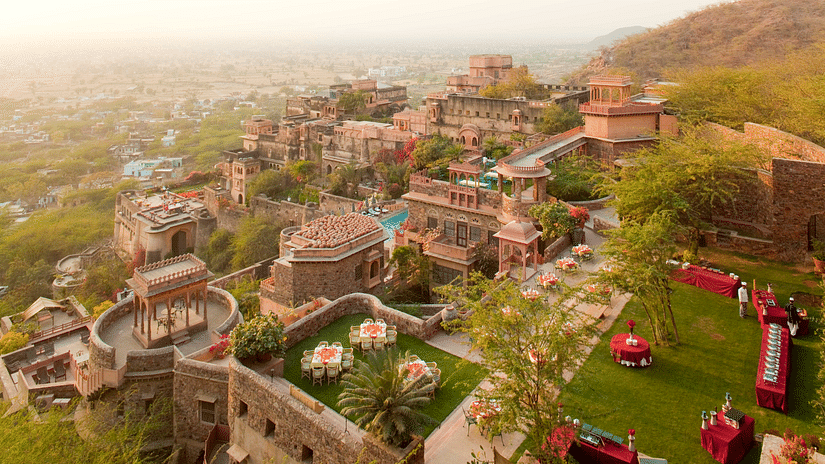
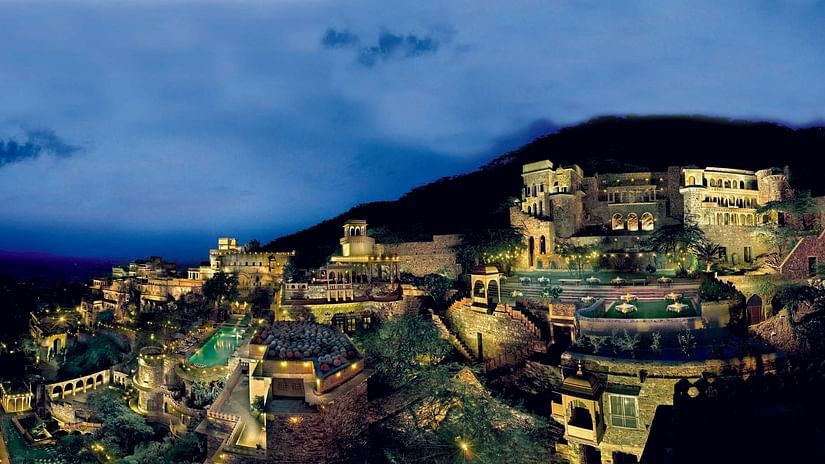
Aman Nath, the Chairman, Neemrana Hotels conducts various talks across the country to create awareness about the non-listed architectural treasures of India. This has created added value for them so that they can be considered worth preserving. The talks also demonstrate the cycle of viability and sustainability showing examples of personal work done so that hundreds more are inspired to restore heritage and enter a viability cycle. This process is now called Neemranification – after the pioneering demonstrative work of the Neemrana team – some 28 projects in 13 states of India.
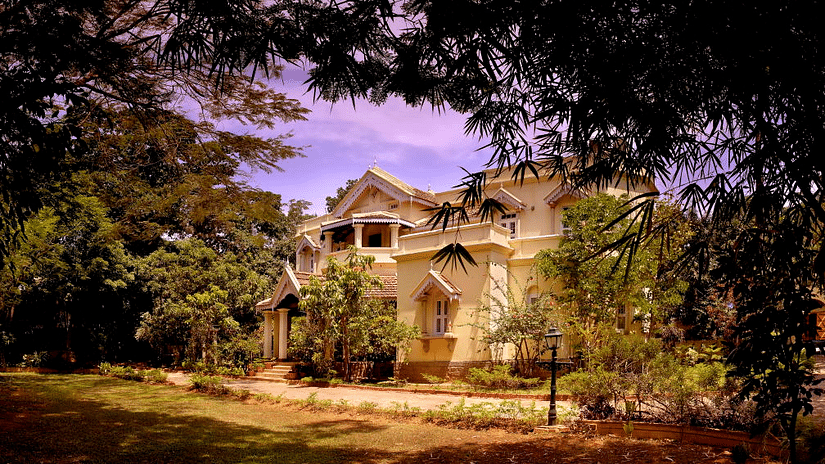
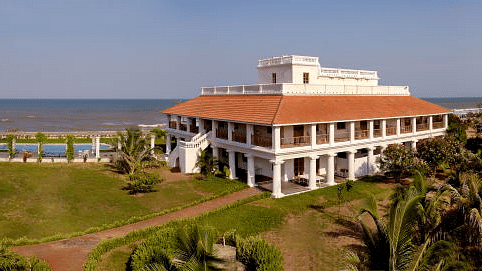
Skill Development Generating Local Employment
Neemrana not only strives to revive and restore heritage structures but also generates jobs and bring economic prosperity to the region where they are located; in-situ employment creators for rural communities thereby avoid rural migration to city slums. The word ‘Neemranification’ has now come to symbolize a viable and sustainable heritage tourism involving the local communities. This involves generating local employment, promoting fair pay and empowerment so that their rural pride resurges to win the battle to counter the obligatory migration to urban slums. The traditional Indian household term “Atithi Devo Bhava” which is imbibed in every Indian newborn is practiced at Neemrana when local youth is trained and introduced to the hospitality industry. Empowering the local lads of the village provides a unique blend of courtesy and pride as they serve and interact with guests as they would in their own home. Untouched by the city, they offer simple yet exemplary hospitality that touches the heart and are the carriers of true, warm hospitality.
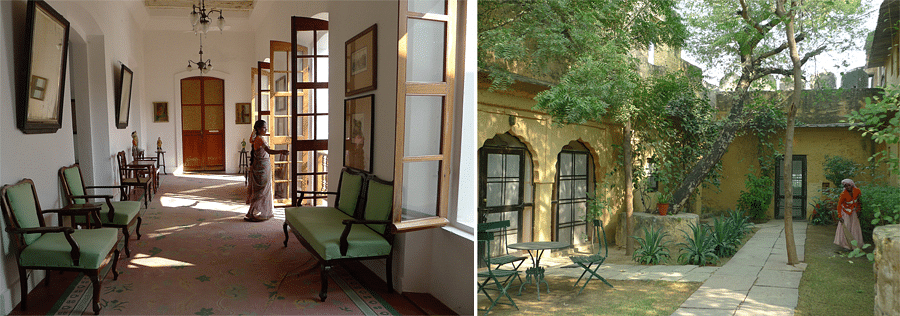
Infrastructure Upgradation
In a unique initiative to support early child development and reproductive health, Neemrana Hotels in partnership with the district administration has adopted, renovated and upgraded an Anganwadi center in Sarhetta village, Rajasthan.

The center has an appealing color scheme and is equipped with educative play materials and health related equipment like weighing machines etc. The caregivers are trained and communities are encouraged to benefit from the center. Attendance of children in the center has increased significantly.

Rural Development: “Creating inspiring villages”
Neemrana Group of Hotels has taken up the mission to adopt villages in its foot print and transform them into “Inspiring Villages.”
Promoting Indian Arts & Culture And Creating A Two-Way Cultural Understanding Across Tourist Places In India
Neemrana Fort-Palace is also actively involved in promoting the art and culture of India across various tourist places in India. There are weekly performances showcasing Indian classical dance and music as well as and Western music performances, workshops, and theatre by renowned artists. Guests get the opportunity to learn about Indian heritage and the opportunity to interact with maestros in the arts while visiting diverse tourist places in India.
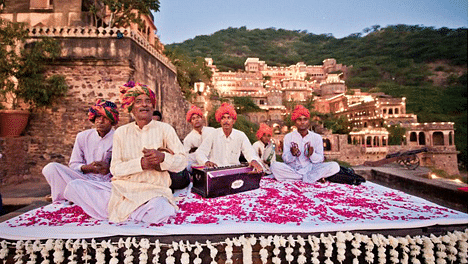
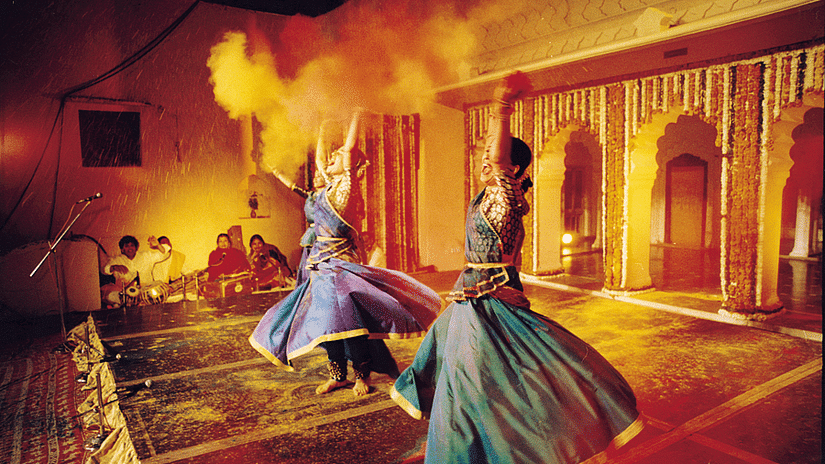
Environment-friendly Initiatives
At Neemrana Fort-Palace, environment-friendly practices like rainwater harvesting, greening of the hills, plantation of saplings and thousands of trees in the desert as well as waste water recycling reduce water wastage. Guests are also entreated to use water wisely and to save electricity.
Neemrana hotels always believe in avoiding the depletion of natural resources in order to maintain an ecological balance. Neemrana Group is known as the 'Non-Hotel Hotel' and is a brand that does not construct buildings but works towards the restoration of old structures, forts and palaces. While undertaking restoration work, the workmen at Neemrana, always use local material like stones ( available on site ) and local wood and eco-friendly lime whitewash is used in place of synthetic wall finishes.
At Neemrana, we don't believe in generating green garbage and don't promote the use of cut flowers. Instead, wildflowers and even leaves from our garden are used as per requirements. We use local material like dry raw crop, flowers and leaves which double up as decorations and last for a long time.
During pleasant weather, instead of seating guests in an AC hall for tea or dinner, we serve food in open spaces which offer a fresh and natural environment to diners. Saving power by minimizing the use of AC's means a reduction in the emissions of carbon dioxide, which help in curbing the effects of global warming
Water is as precious as life now. For water saving and reducing wastage, we treat water so it can be recycled and reused. In order to reduce water used for irrigation, we have also undertaken the initiative of growing our own vegetables and this aids us in serving our guest's with fresh salads and tasty vegetables. These are all organic and do not use chemical fertilizers. Bigger gardens also mean a huge supply of dry leaves which can be used as organic leaf manure.
We extend the idea of using environmentally friendly products to our guests and we use hand wash and laundry soaps which generate less foam which is directly responsible for water saving, as less water is required for washing purposes.
We refrain from using plastic cups and glasses for parties and weddings, instead, we use an eco-friendly alternative which is the earthen kulhad. These earthen utensils decompose easily and reduce the amount of water used for washing. Taking a step ahead, we do not use plastic bags at Neemrana Shops, but only encourage the use of recycled bags. These initiatives are part of our no-plastic policy and are our way of making Planet Earth a green place to live in. Few of our hotels also harness solar energy and our properties use LED bulbs instead of regular bulbs that save energy and provide an economical option.
Neemrana Hotels strive hard towards maintaining the fragile balance of the ecology and continue to adopt practices that benefit the environment.